Former President Donald Trump made healthcare policy a key feature of his successful 2016 White House campaign. For 2024, he and the rest of the Republican field are focusing on social and cultural matters related to healthcare.
On the 2016 campaign trail, repealing and replacing Obamacare was central to each candidate’s campaign. This included Trump, who promised to produce “something great” in place of former President Barack Obama’s signature domestic achievement from 2010.
LACKS THE VOTES, HAS THE JOB: BIDEN KEEPING JULIE SU AS ACTING LABOR SECRETARY INDEFINITELY
After congressional Republicans failed to pass a pared-down version of Obamacare in 2017, Democrats won the House in November 2018, killing the last chance to make good on this promise before the COVID-19 pandemic overtook the remainder of the Trump presidency.
Although policy-heavy matters such as health insurance, Medicare, and pharmaceuticals are still a high priority for 2024 GOP candidates, subjects such as COVID-19, gender transition medicine, and abortion have taken center stage.
These social matters of healthcare are likely to come up in the first scheduled Republican primary debate on Aug. 23. Here’s where the field stands now, ahead of what’s emerging as a fiery GOP primary season.

Abortion: Trump takes credit for being “able to kill Roe v. Wade,” having appointed three Supreme Court justices who voted in favor of ending abortion as a national right and effectively sending it to the states. However, Trump has not publicly supported a national abortion ban, which some anti-abortion groups are demanding. Trump said on the anniversary of the Dobbs v. Jackson Women’s Health Organization decision that the federal government has a “vital role … in protecting unborn life” but failed to give specifics.
COVID-19: Willingly or not, the final 10 months of Trump’s White House term are linked to the virus. And the former president has hardly forgotten heading into 2024.
“The cover-up of COVID-19’s origins is one of the greatest scandals in the history of the world,” Trump wrote in a March op-ed promising to hold China accountable. Trump has touted Operation Warp Speed to deliver the mRNA COVID-19 vaccines in nine months instead of multiple years, yet he acknowledged in June that the vaccine is “not a great thing to talk about” as a Republican, with much of his political base skeptical of the vaccines.
Gender Transition Medicine: In January, Trump committed to supporting a federal ban on what he called “child sexual mutilation.” In June, Trump announced that, if returned to office, he would issue an executive order for federal agencies “to cease the promotion of sex or gender transition at any age.” He would also immediately terminate funding for hospitals conducting gender transition surgeries for minors.
Medicare and Medicaid: Trump has made clear his distaste for cutting federal social insurance programs, in contrast to some GOP rivals who say it’s necessary to tame exploding debts and deficits.
“Under no circumstances will we allow anyone to cut Medicare or Social Security for our nation’s seniors,” Trump said in February. Trump was also the first president to institute a policy for states to obtain a waiver to create work requirements for Medicaid recipients.
______________________________________________________________________________________________________
Here’s what Trump’s 2024 GOP rivals say about healthcare matters. Each, in their own way, is taking head-on swipes at the Biden administration’s healthcare approach.
______________________________________________________________________________________________________
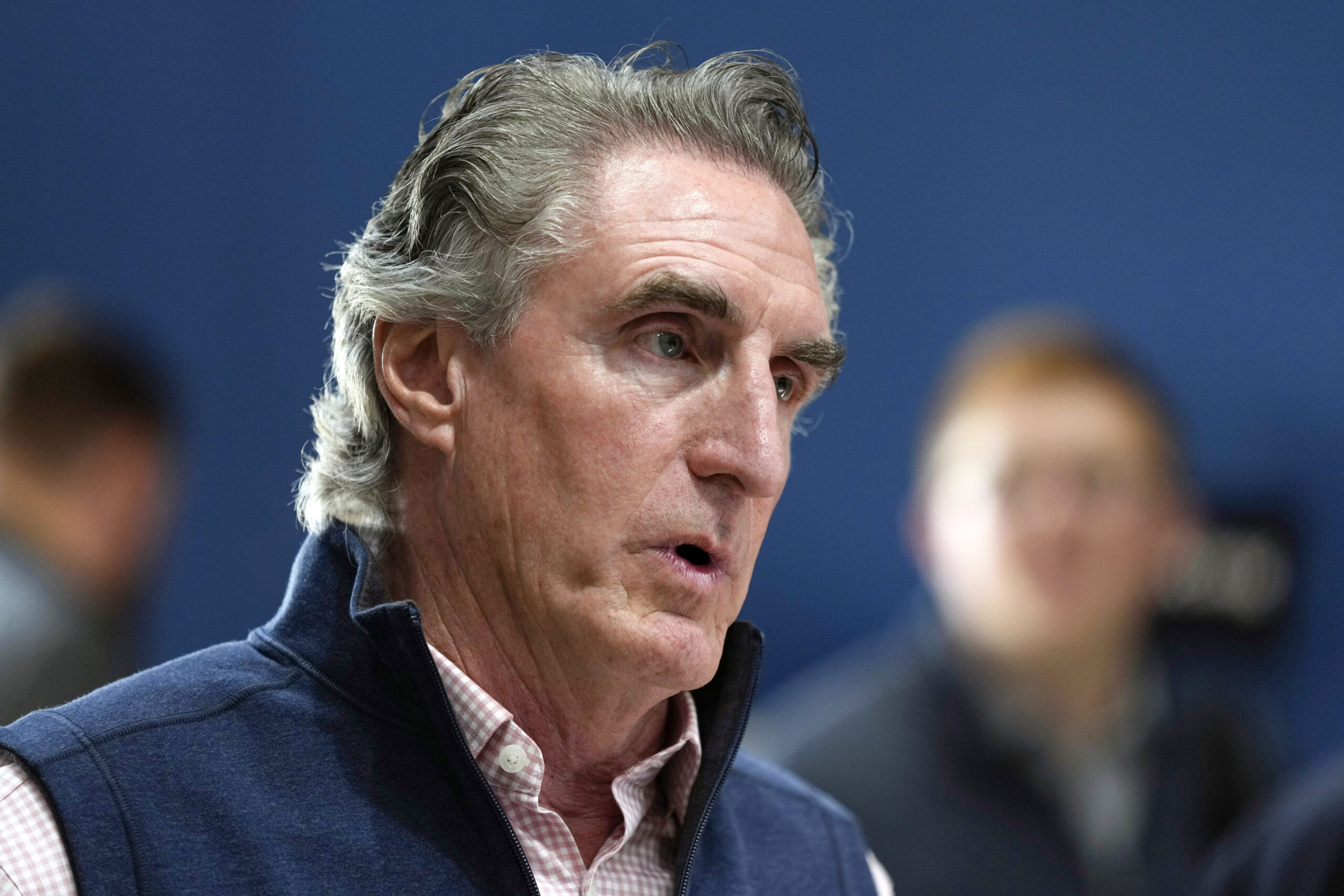
Abortion: As North Dakota governor, Burgum signed a near-total abortion ban into law in April. He has promised, however, not to sign any federal-level abortion bans, saying in July that “this is the decision that should be left to the states.”
COVID-19: Burgum lifted North Dakota’s COVID-19 emergency declaration on April 30, 2020, after declaring a state of emergency on the same day as then-President Donald Trump, March 13. North Dakota was also involved in suing the Centers for Medicare and Medicaid Services regarding the Biden administration’s COVID-19 vaccine mandates for healthcare workers.
Gender Transition Medicine: In April, Burgum, a billionaire software entrepreneur before winning the North Dakota governorship in 2016 on his first bid for public office, signed a law making gender transition medicine for minors a crime in North Dakota. The law aims to protect “children from the life-altering ramifications” of medical transition, Burgum said. He has not made a statement about national-level policy on this matter.
Medicaid: North Dakota had the highest Medicaid expenditure per enrollee in the country in 2020. In 2019, Burgum proposed having a state agency manage Medicaid expansion programs to reduce costs, which was a proposal that died in the GOP-controlled state legislature.
______________________________________________________________________________________________________
Former New Jersey Gov. Chris Christie

Christie’s 2024 GOP primary bid is more attitudinal than focused on public policy matters so far, with the New Jersey governor from 2010-2018 emphasizing Trump’s unfitness to be president. This is after Christie became an early Trump supporter after dropping out of the 2016 GOP presidential primary field. Christie said he broke with Trump after the Jan. 6 riots at the Capitol and has since become a caustic critic.
Abortion: That’s not to say Christie has completely ignored policy. He has emphasized his anti-abortion bona fides at the state level.
“For 50 years, conservatives like me have been arguing this is not a federal issue,” Christie said in a recent USA Today interview. “It’s not in the Constitution. It’s a state issue, and it should be decided state by state.” Christie does not support any national-level abortion ban.
COVID-19: Christie spent seven days in intensive care in October 2020 for COVID-19, which the former governor said he contracted after attending a “superspreader” event to honor newly installed Supreme Court Justice Amy Coney Barrett.
Gender Transition Medicine: Christie said in June that parents need to be involved in decisions about gender transition medicine for minors. “I don’t think that the government should ever be stepping [into] the place of the parents in helping [their children who are] confused or concerned about their gender,” Christie said. That puts Christie somewhat to the left of most 2024 GOP rivals on the subject, to the degree he’s discussed it on the campaign trail. Christie has mostly mentioned it in response to media interview questions.
Medicare and Medicaid: During his 2016 presidential run, Christie proposed increasing the Medicare eligibility age to 67 and suggested a modest means test for Medicare and Social Security. Although he also supported the “repeal and replace” mantra for Obamacare, Christie, as New Jersey governor, embraced Medicaid expansion in the state.
______________________________________________________________________________________________________
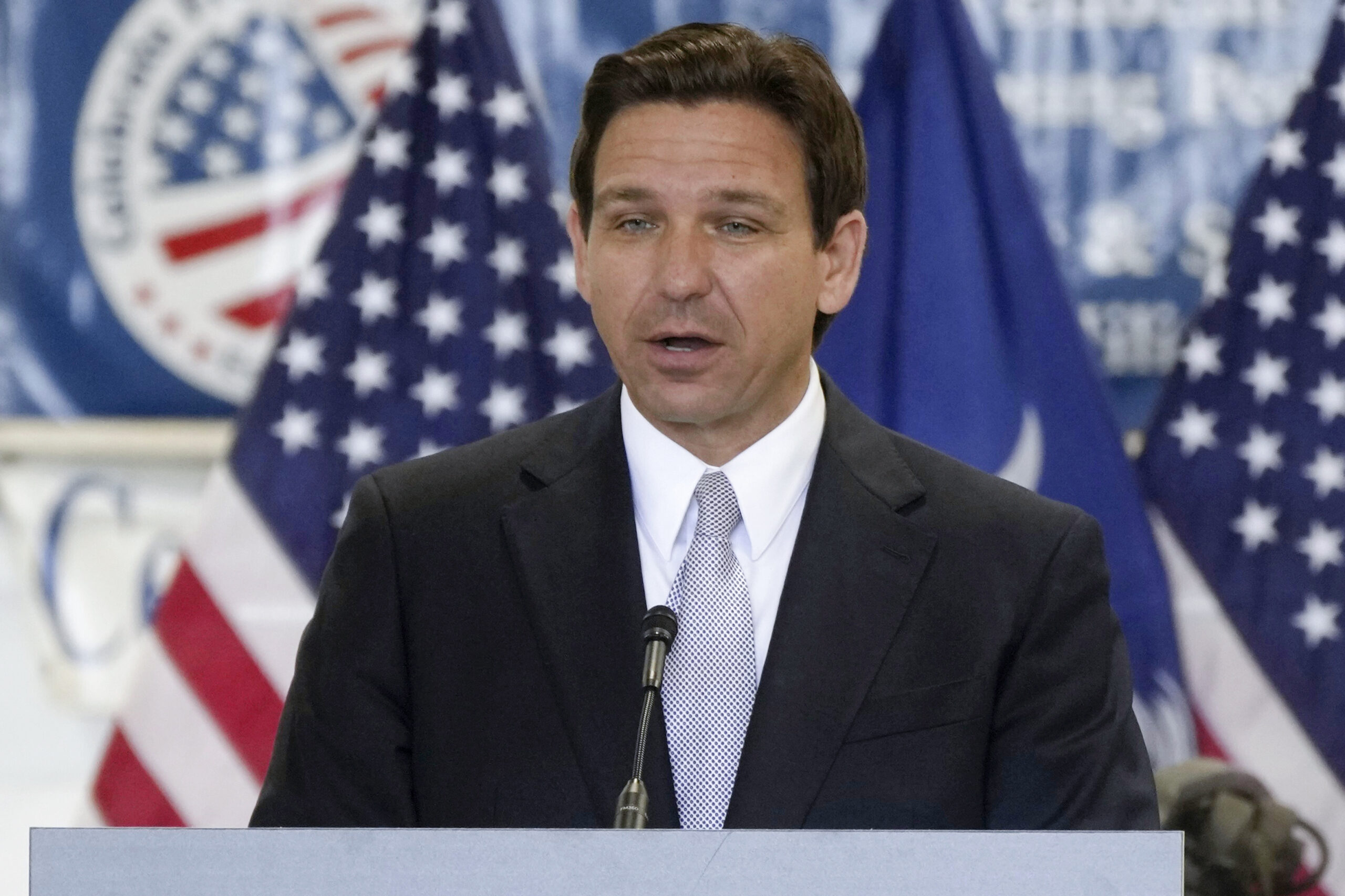
Abortion: DeSantis signed a six-week abortion ban in Florida, but a 15-week ban remains in effect while litigation is pending on the new law. Although DeSantis has rebuked Trump for calling the six-week ban too harsh, he has been coy about supporting national-level abortion regulation.
COVID-19: DeSantis locked down Florida for four months in 2020 and worked to increase vaccine rollout to his state’s high senior citizen population. But he also was lauded by conservatives for opposing mask measures and generally taking a more skeptical approach to the widespread effects of the COVID-19 pandemic.
The governor, elected in 2018 after nearly six years as a House member, has voiced skepticism over the efficacy of COVID-19 vaccines. At a South Carolina rally in July, DeSantis criticized the rush to get mRNA COVID-19 vaccines to market without proper efficacy testing. Florida is also the only state with a grand jury investigating the vaccine side effects.
Gender Transition Medicine: As an outspoken critic of what he calls “woke gender ideology,” DeSantis and the GOP-dominated Florida legislature enacted legislation in May that prohibits gender transition medicine for minors. DeSantis has not yet made a statement on whether he would support the abolition of gender transition medicine for minors on the national level.
Medicare and Medicaid: In the House, DeSantis voted to increase the Medicare age to 70 due to changes in life expectancy. DeSantis, however, has also opposed cutting Social Security and Medicare, in part because of the percentage of senior citizens in his state. Florida also is among 10 states that have not expanded Medicaid under Obamacare.
_______________________________________________________________________________________________________
Former South Carolina Gov. Nikki Haley

Abortion: Haley was South Carolina’s governor from 2011-2017 before spending just under two years as U.S. ambassador to the United Nations in the Trump administration. Now running against her old boss, Haley is emphasizing women’s issues, especially abortion, from a feminine perspective. Haley said in May she would sign a federal abortion ban, but the prospect of passing one is unlikely. At the Susan B. Anthony List in April, Haley said that “the next president must find national consensus” and encourage state-level legislation.
COVID-19: In February, Haley tweeted, “COVID-19 likely came from a Chinese lab” and that U.S. aid dollars should be withheld from China. Haley tweeted in June 2020 that “any coronavirus cure will be thanks to capitalism,” for which she was criticized for not appreciating the government’s role in research and development.
Gender Transition Medicine: Haley has called transgenderism the “women’s issue of our time” and suggested teenage girl suicide rates are rising partly because of radical gender ideology.
“Women are being told their voices don’t matter. If you think this kind of aggressive bullying isn’t part of the problem, you’re not paying attention,” Haley said.
Medicare and Medicaid: Haley supports raising the retirement age to meet higher life expectancy and restructuring benefits for the next generation.
“It is unrealistic to say you’re not going to touch entitlements [but] don’t have to touch it for seniors and anybody near retirement,” Haley said in March. As governor of South Carolina, Haley refused to implement the state Obamacare exchange program and did not expand Medicaid.
_______________________________________________________________________________________________________
Former Arkansas Gov. Asa Hutchinson
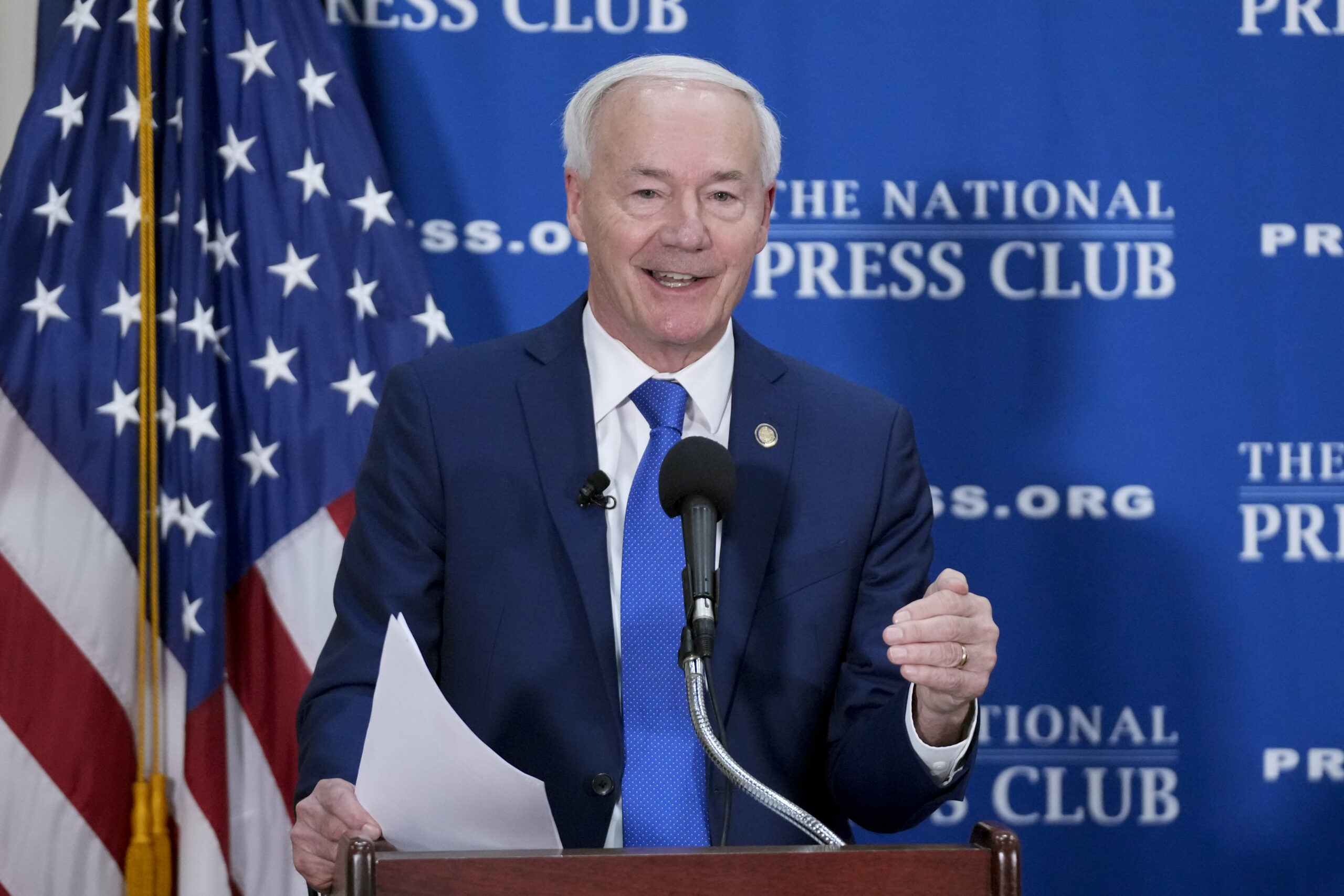
Abortion: In April, Hutchinson said he would sign any federal anti-abortion bill as long as it had exceptions for rape and incest. “I believe that’s where the American public is,” Hutchinson said.
Hutchinson was Arkansas governor from 2015-2023 and, before that, had high-level government roles in President George W. Bush’s administration and was a House member for nearly five years. As governor, he signed a near-total abortion ban in March 2021 that outlawed the procedure except for a maternal medical emergency.
COVID-19: Hutchinson was one of only seven governors not to issue stay-at-home orders during the height of the pandemic in early-to-mid 2020. Hutchinson signed into law a statewide ban on mask mandates in Arkansas in July 2021, which the then-governor said he regretted shortly after. In December 2022, Hutchinson criticized DeSantis’s skepticism of COVID-19, encouraging increased vaccinations.
Gender Transition Medicine: Hutchinson said the decision to transition a child medically should be up to the parents.
“I believe that God created two genders and that there should not be any confusion on your gender,” Hutchinson said in July. “But if there is confusion, then parents ought to be the ones that guide the children.”
Medicare and Medicaid: “We have got to protect Social Security and Medicare,” Hutchinson told PBS NewsHour in March, noting that he does not support raising the retirement age. As Arkansas governor, Hutchinson also expanded Medicaid enrollment eligibility.
______________________________________________________________________________________________________
Former Vice President Mike Pence
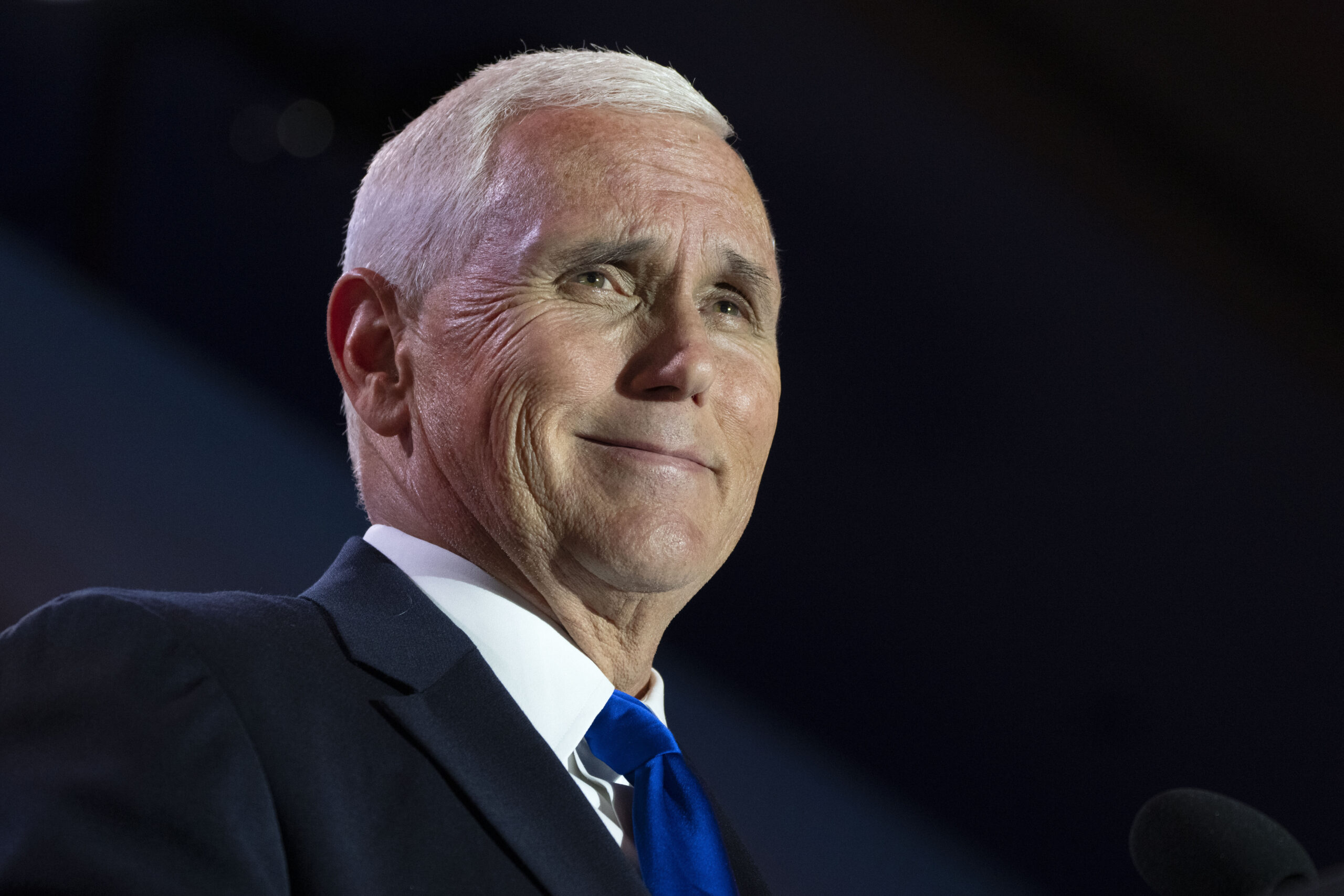
Abortion: As the most prominent social conservative in the 2024 Republican primary, Pence is the only candidate in the race who supports a six-week federal abortion ban. Pence also said in April that he would like the abortion pill mifepristone to be taken off the market.
COVID-19: As vice president, Pence called for holding China accountable for irresponsible public health practices relating to COVID-19. Pence also stood against federal-level lockdown measures as the leader of the White House Coronavirus Task Force in the earliest days of the pandemic and later was critical of the Biden administration’s vaccine mandate policy.
Gender Transition Medicine: Pence, a former Indiana governor and 12-year House member, is a strong opponent.
“If there was a move in the Congress to protect children from this radical gender ideology and to ban chemical or surgical transition treatment for kids under the age of 18, you bet I would support it,” Pence told the Des Moines Register in June.
Medicare and Medicaid: Pence has said that cutting Medicare benefits needs to be “on the table for the long term” to face the looming debt crisis. He has called for “commonsense and compassionate solutions.” As Indiana governor, Pence made several conservative amendments to Medicaid expansion, including work requirements and mandatory health savings account contributions.
______________________________________________________________________________________________________
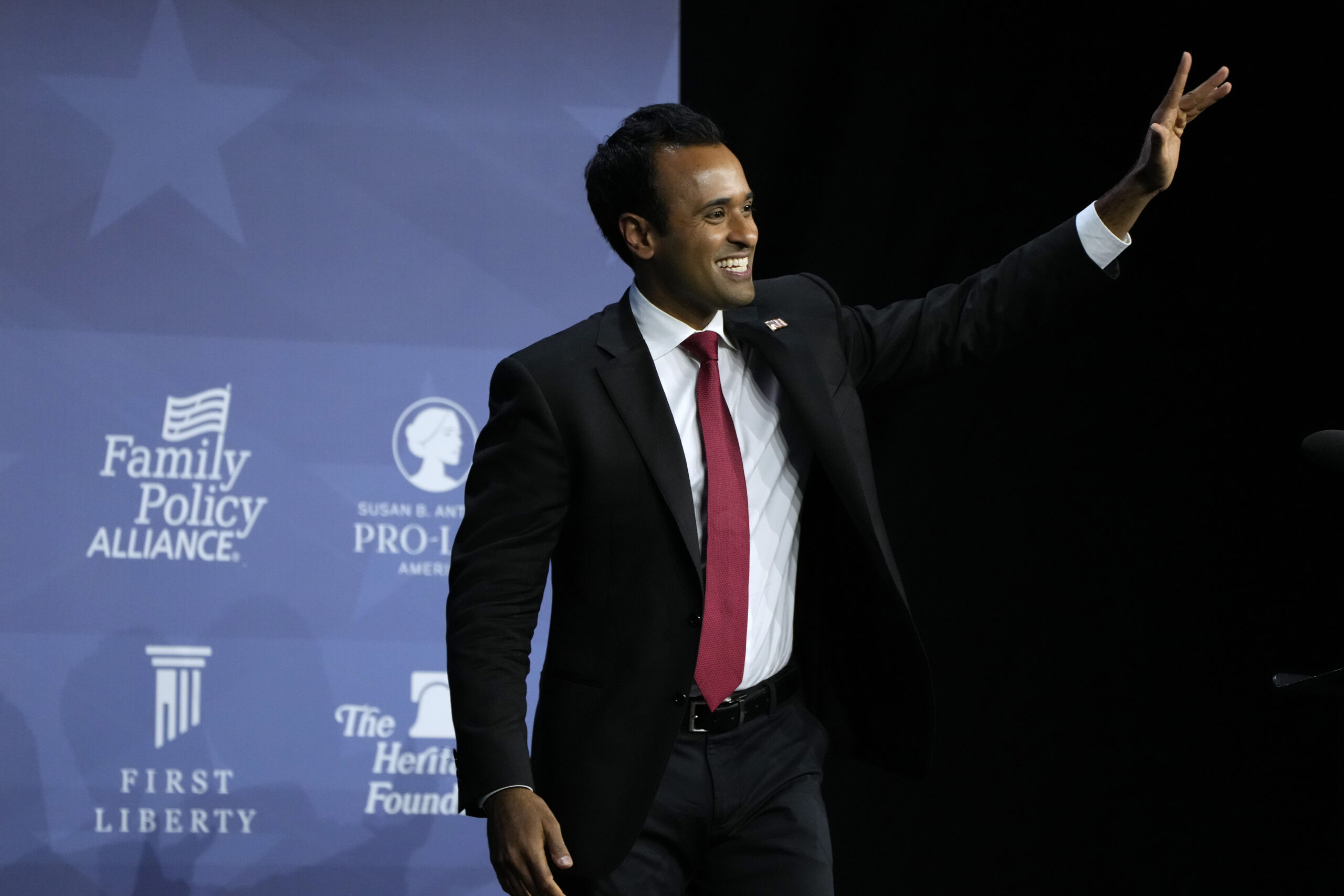
Abortion: Ramaswamy supports state-level abortion bans at six weeks gestation, citing the presence of electrical brainwave activity.
“This is not an answer for the president because I think the federal government should be out of this,” Ramaswamy said in July. “But if you’re a governor or you’re dealing within the states, I can share with you my opinion.”
COVID-19: Ramaswamy — who, before running for president, was a frequent cable television presence denouncing “wokeism” in the corporate sphere — said he intends to hold the Chinese Communist Party accountable for COVID-19. He also would use executive authority to dismantle the administrative state, including the Centers for Disease Control and Prevention. He has also been an outspoken advocate of a libertarian approach to public health, focusing on personal responsibility and risk assessment.
Gender Transition Medicine: Ramaswamy signaled in May he would sign a national ban on gender transition medicine on minors, saying it is more compassionate to address a patient’s mental health as a treatment for gender dysphoria.
Medicare and Medicaid: Although there is little information about Ramaswamy’s stance on Medicare and Medicaid, his limited government and free market perspective could inform these views.
______________________________________________________________________________________________________
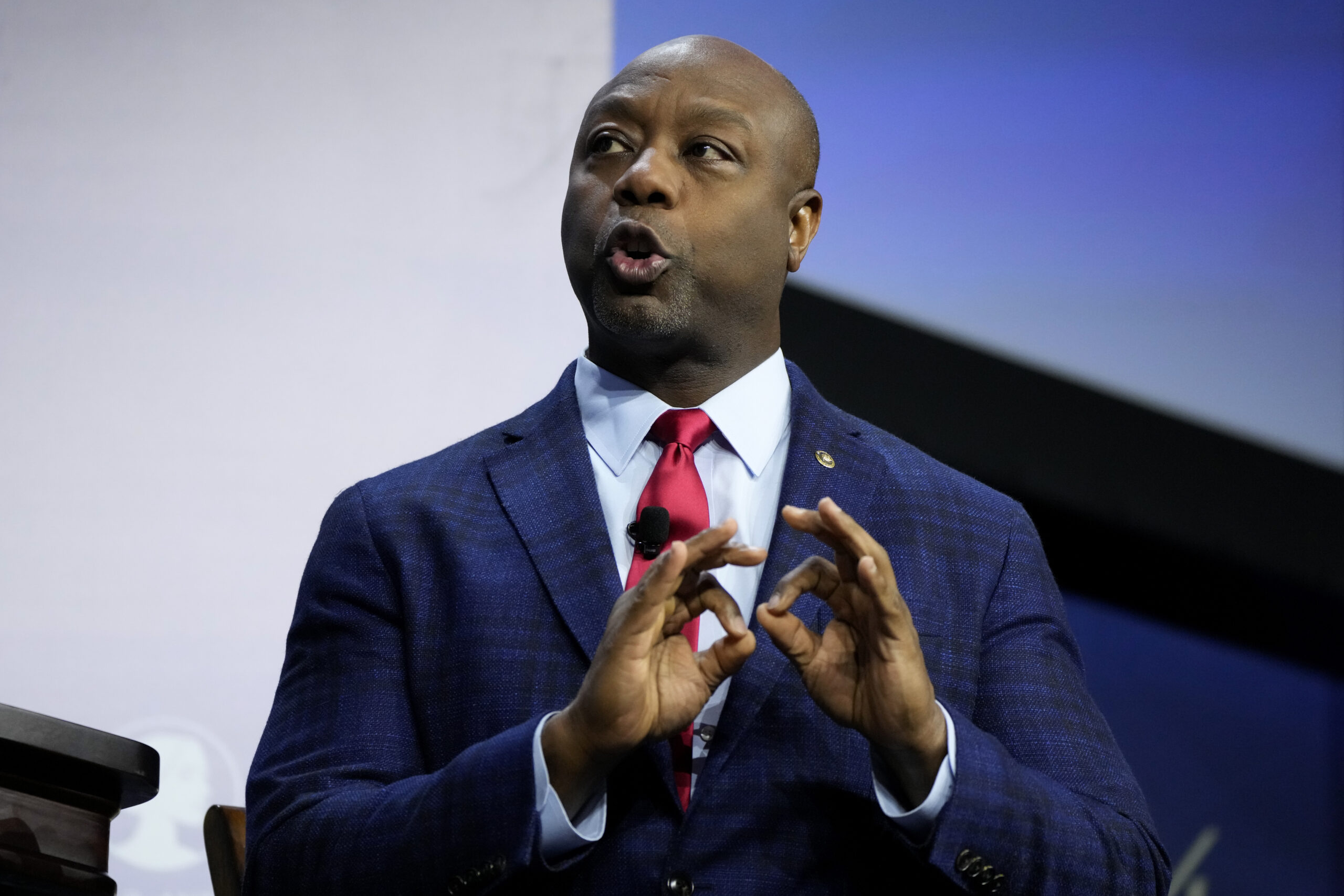
Abortion: As a senator for South Carolina, Scott has co-sponsored a 20-week abortion ban and signaled he would sign a national 15-week abortion ban. He said, however, that the power of persuasion is more important than hypothetical legislative action at this moment. He is a strong advocate of what he calls a “culture of life” and fostering a healthy national dialogue.
COVID-19: “The more China lies, the more Americans die,” Scott said in a Fox News interview in March, noting that he has seen “compelling evidence that the Wuhan lab, not nature, is the reason why COVID happened.”
Scott was also a fierce critic of the COVID-19 vaccine mandate policy that “wreaked havoc on Americans.”
CLICK HERE TO READ MORE FROM THE WASHINGTON EXAMINER
Gender Transition Medicine: Last September, Scott introduced the Parental Rights Over the Education and Care of Their Kids Act, which would restrict federal funding for primary schools that conceal children’s gender identities from their parents.
Medicare and Medicaid: Scott is a leading member of the Senate Committee on Aging and has said he would “never, ever cut Medicare or Social Security benefits.” In Iowa in June, Scott suggested that changing the payment structure for Medicare to focus on outcomes rather than procedures would be a way to improve cost efficiency and quality control.
